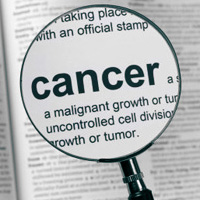Endothelin-1 indicates unfavorable prognosis in primary high-grade non-muscle-invasive urothelial bladder cancer

Accepted: January 23, 2021
All claims expressed in this article are solely those of the authors and do not necessarily represent those of their affiliated organizations, or those of the publisher, the editors and the reviewers. Any product that may be evaluated in this article or claim that may be made by its manufacturer is not guaranteed or endorsed by the publisher.
Authors
Objective: To conduct a prospective study of the potential prognostic role of endothelin-1 (ET-1) in a cohort of primary high-grade non-muscle-invasive urothelial bladder cancer patients, who were treated with adjuvant intravesical Bacillus Calmette-Guérin (BCG).
Material and methods: Patients with primary high-grade nonmuscle- invasive urothelial bladder cancer, who received postoperatively induction and maintenance BCG therapy, were prospectively included. Recurrence and progression were histologically proven. Immunohistochemical staining for ET-1 was assessed. Epidemiological, pathological and clinical parameters as well as the expression of ET-1 in tumor specimens were statistically analyzed for recurrence, progression, recurrence-free survival (RFS) and progression-free survival (PFS).
Results: ET-1 associates significantly with recurrence (p = 0.000), progression (p = 0.000), RFS (p = 0.000) and PFS (p = 0.000). The patient’s age is also significant for recurrence (p = 0.003, OR = 1.273 95% CI: 1.086-1.492) and RFS (p = 0.013).
Conclusions: ET-1 seems to deteriorate prognosis in patients suffering from primary high-grade non-muscle-invasive urothelial bladder cancer, who are treated with adjuvant BCG instillations. Furthermore, the patient’s age associates with an increased likelihood for recurrence.
How to Cite
PAGEPress has chosen to apply the Creative Commons Attribution NonCommercial 4.0 International License (CC BY-NC 4.0) to all manuscripts to be published.

 https://doi.org/10.4081/aiua.2021.2.143
https://doi.org/10.4081/aiua.2021.2.143



